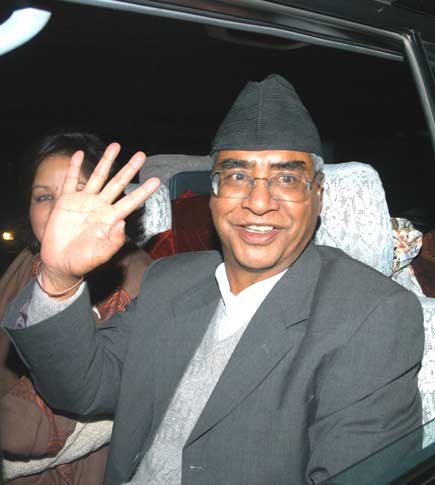Global Corruption Report 2007:
Why hire a lawyer when you can buy the judge?" quotes Transparency International in its recently published Global Corruption Report 2007.
Since 2002, TI has been publishing, on an annual basis, a global corruption report detailing on thematic issues related to corruption. This year the selected thematic issue is on judicial corruption. It has been a tradition for the GCR to be divided into three sections, namely, detail analysis of the selected theme, the country-specific corruption reports and the summary of research findings in the field of corruption and anti-corruption for the period under review.
Corruption or rather anti-corruption is becoming more and more a specialized area of study and investigation. Last year, GCR specialized on health sector corruption. Earlier reports were focused on corruption problem related to public procurement and construction, political parties and media and rights to information. From 6 to 15 June, UNESCO is organizing an international event on education sector corruption in Paris. The focus of GCR 2007 is on judicial corruption - how bad the temple of justice could be in dispensing justice to the people.
It is amazing to see Nepali media and, moreover, mushrooming donor-funded anti-corruption agencies and NGOs keeping quiet on the publication of GCR 2007 amid a time when Nepali media is replete with stories after stories on judicial corruption ranging from CD scams, Kanudia case to Robinson revelations. Even CIAA seems to be unaware of the value of this report when it is losing, now almost on regular basis, high profile corruption cases that it has filed in the Special Court - the court expected to specialize on corruption. This has brought to the fore a need to reassess Nepal's anti-corruption drive.
A journalist taking of corruption stories has reckoned Nepal's judiciary to be the "factory of corruption". It will be interesting to understand how inputs, outputs and processing functions take place within this factory of corruption. Therefore GCR 2007 is a valuable document to this end.
First, a definition on judicial corruption. In broad terms, corruption is the misuse of entrusted power for private gain. In the context of judicial corruption, it relates to acts or omissions that constitute the use of public authority for the private benefit of court personnel, and results in the improper and unfair delivery of judicial decisions. Such acts and omissions include bribery, extortion, intimidation, influence peddling and the abuse of court procedures for personal gain. The corruption in judiciary is not only confined to the courts, it also extends to other parties and institutions established to dispense justice, namely, police, lawyers, prosecutors and bailiffs and enforcement agencies. The roots of judicial corruption can be found even in the norms and values held by the society. Therefore GCR 2007 is structured as a series of concentric circles, beginning first with the judiciary, and the causes and remedies of judicial corruption; then extending to the broader justice system; and finally to wider society in which the justice system is situated.
Talking about the harms of the judicial corruption, the President of Transparency International Huguette Labelle writes, "Judicial corruption undermines citizens' morale, violates their human rights, harms their job prospects and national development and depletes the quality of governance. A government that functions on behalf of all its citizens requires not only the rule of law, but an independent and effective judiciary to enforce it to the satisfaction of all parties." The required "rule of law" can very easily be translated into "rule with law" and finally degenerated into a situation of lawlessness. Remember, Maoist People's Court were popular not because people have faith in their system, it is because of their despair with the Nepali judicial system. When courts are infested with corruption, only an alternative people would seek is to take law into their own hands. And this is the starting point for violence and conflict.
The report has identified seven sins or major causes of corruption in the judiciary. They are: (1) Undue influence by the executive and legislature, (2) Social tolerance for corruption, (3) Fear of retribution, (4) Low salaries of judicial court staff, (5) Poor training and lack of rewards for ethical behavior, (6) Collusion among the judges and (7) Inadequate monitoring of judicial system.
Susan-Rose Ackerman, a powerful writer on corruption, especially renowned for pulling together the ideas from the economics and law, calls for independency of judiciary if it is to act as an effective watchdog over the government. It must be both independent of the legislature and the executive, and of high integrity. It must not be subject to pressure from powerful politicians or others in the public and private sectors who benefit from a corrupt status quo. Delving on the traditions of the "common law" and "civil law", she writes, "Corruption in the judiciary can occur even when the courts are independent of the rest of the state. In fact, their very independence may facilitate corruption because no one has the authority to oversee them. Thus a fundamental paradox exists. If courts are independent, judges may be biased toward those who make payoffs. If they are not independent, they may be biased in favor of politicians who have power over them." Equally fascinating is to know from GCR 2007 is that when it comes to judicial independence, de jure and de facto independence are as much poles apart as the word themselves convey. None of the top ten countries that listed in de jure independence turn up when they are listed in de facto independence. If words and deeds differ so much in a justice system what could be the meaning of injustice? Try reading GCR 2007 and you will find more.

